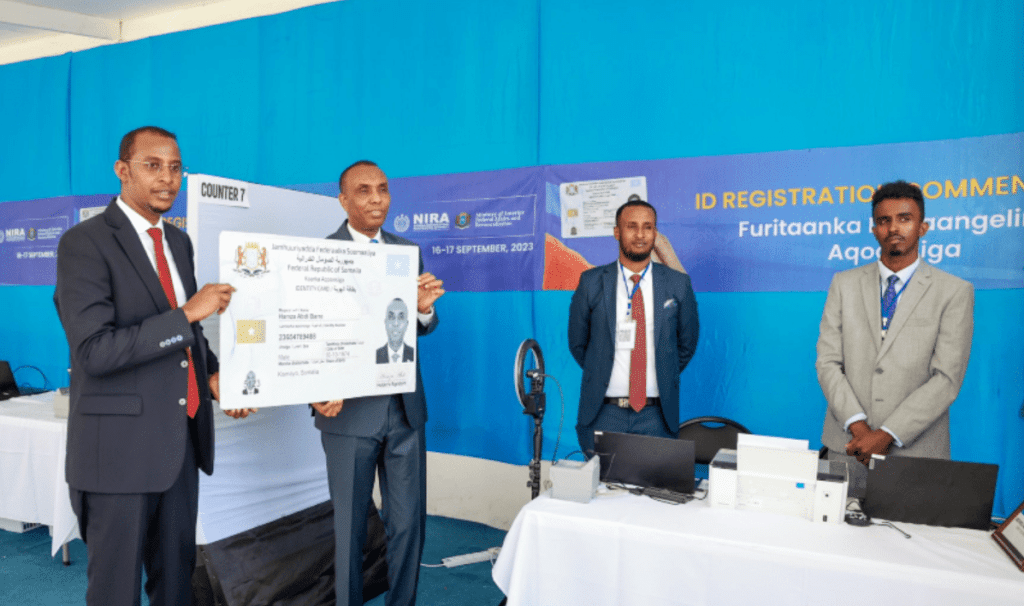Somalia’s government has announced that the use of the national Biometric ID will now be mandatory for accessing both public and private sector services. The move is aimed at enhancing identity verification, improving service delivery, and curbing fraud. Authorities have urged institutions to integrate the system promptly for nationwide implementation.
Government Expands Biometric ID Usage Across All Services
According to official directives, over 80% of public institutions in Somalia have begun implementing the Biometric ID system. This move is expected to reduce fraud by nearly 60% and improve service delivery. The nationwide rollout targets full compliance by the end of 2025. Government data suggests a 40% increase in registration rates over the past three months. This initiative aims to ensure transparency and security in public administration.
Private Sector Compliance and Integration Progress
Recent surveys indicate that 65% of private sector organizations have initiated integration with the national digital ID framework. Telecommunications, banking, and insurance sectors lead with over 75% readiness. Experts estimate that full sector-wide compliance could add $150 million in annual economic efficiency. The Somali Chamber of Commerce reports strong support for the transition. However, delays remain in smaller firms due to limited digital infrastructure.
Access Challenges in Remote and Rural Regions
Data from the Ministry of Interior shows only 35% Biometric ID coverage in remote areas. Infrastructure limitations, low digital literacy, and security concerns hamper outreach. Mobile registration units are being deployed, targeting 500,000 residents in underserved regions by mid-2025. A UN-backed initiative is providing technical and logistical support. Without effective rural inclusion, the program risks widening the digital gap.
Biometric ID Rollout Boosts Digital Identity Security
The introduction of Biometric ID has reportedly reduced identity fraud cases by 47% in sectors already using the system. Cybersecurity breaches related to identity theft have also dropped by 30% since the pilot phase. A joint study by the government and international partners projects a 70% drop in document forgery by 2026. User satisfaction surveys show a 78% approval rate. These improvements mark a critical step in Somalia’s digital governance strategy.








